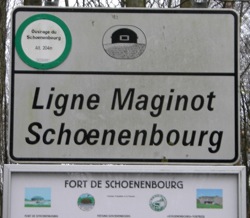 Editor’s Note: We’re wrapping up 2010 by asking some of the smartest people in journalism what the new year will bring.
Editor’s Note: We’re wrapping up 2010 by asking some of the smartest people in journalism what the new year will bring.
Today, it’s web pioneer Dave Winer, a man key to the evolution of many of the publishing technologies we use online today, currently a visiting scholar in journalism at NYU, and half the team behind the Rebooting the News podcast.
 When people in the news business try to figure out how to make news pay after the Internet, it seems analogous to the French, after being invaded by Germany in World War II, trying to figure out where to put the new Maginot Line.
When people in the news business try to figure out how to make news pay after the Internet, it seems analogous to the French, after being invaded by Germany in World War II, trying to figure out where to put the new Maginot Line.
The Maginot Line would have been a perfect defense in World War I. It didn’t help much in the second war.
Analogously, there was a perfect paywall in the pre-Internet news business, the physical product of a newspaper. There is no equivalent in the new distribution system.
Howard Weaver’s latest post put this into focus for me. That, and the recent attention on Groupon, which it seems to me has usurped, again, one of the big roles that local news organizations could have played, obviating the need to find the new paywall.
It isn’t really a question if you’ve created something worth paying for. It might be very good, and expensive to create. What matters is if there’s a market for it.
The people in the business of creating fixed fortresses might have asked the same question after WWII. We could make a much better Maginot Line now, we know so much more and technology is so much more advanced. Wouldn’t matter, because France wasn’t in the market for a new Maginot Line.
That’s the question news people never seem to ask. How can we create something that has a market? If they asked that question instead, they would restructure their activity. Because there are things similar to news that have generated huge wealth. Not hidden, in plain sight.
The first usurpage was of course Craigslist. It wasn’t so obvious then that this was the natural domain of the press, because Craigslist made a small fraction of the money the news industry used to make from classifieds. It looked like CL was just undermining the press, not competing with it. But Groupon — this is the fastest-growing company of all time. The founder says what they do is find ways for people to get out and enjoy their city. And they make a boatload of money doing it.
Here’s one way of looking at what both Groupon and local news organizations do — they put smart hard-working people into the field to keep tabs on what people in the community are doing. Some of what they are doing is robbing and killing each other — that’s what news is interested in. Another part of what they’re doing is buying from and selling to each other. Groupon is making huge bucks on that.
It seems there’s still time for a philosophy change in the news business. Become more focused on the commerce of your communities, and the opportunities to make money will become more apparent. Seems like common sense to me.